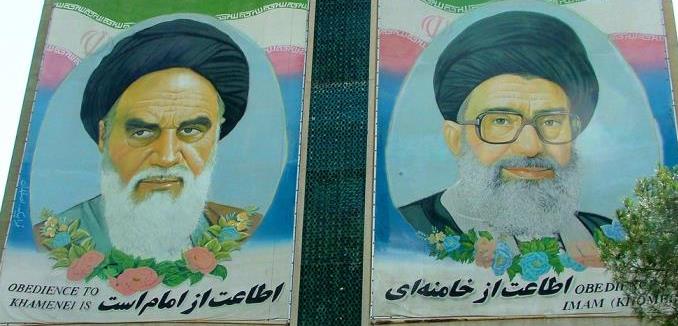Celebrated claims made by Iranian President Hassan Rouhani asserting that he has “full authority” to negotiate deals on behalf of Tehran may come under renewed scrutiny, after an even more celebrated phone call between Rouhani and President Barack Obama was criticized by Iran’s Supreme Leader Ali Khamenei as “not appropriate.”
Khamenei went on to declare that “the American government is untrustworthy, supercilious and unreasonable, and breaks its promises” and that it had been “seized by the international network of Zionism.”
This is not the first time that U.S. overtures to Iran have been met with heated responses from Khamenei. Last month the U.S. lifted certain restrictions on Iran, which The New York Times contextualized as coming “as Iran’s new president, Hassan Rouhani, has signaled his desire to improve relations.”
The administration’s decision to ease pressure came on a Tuesday. The next day Khamenei, addressing officials in Tehran, lashed out against Washington. Hezbollah media conveyed the Supreme Leader as pointing out “that the U.S. is crushing the rights of other countries, while supporting the interests of the Zionists, enemies of humanity, and that of capitalists who do not feel a minimal commitment to the accepted human values and morals.”
The substance of the comments – and perhaps even more so the tone – have renewed questions about the degree to which Rouhani is either able or willing to moderate Iran’s policy.
Following Rouhani’s speech last month to the United Nations General Assembly, The Israel Project held a conference call with Tel Aviv University Iran expert Dr. Raz Zimmt. Zimmt echoed broad, long-standing evaluations that Rouhani is a regime insider, and that the revolutionary-era cleric has spent decades tied to Tehran’s security establishment. A recording of the Zimmt briefing is embedded below.
Zimmt suggested that Khamenei would seek to preserve a military dimension to Iran’s nuclear program, which the supreme leader believes is necessary to deter Western conspiracies against Iran. Khamenei nonetheless desires an end to crippling sanctions, which have badly eroded the Iranian economy and risk triggering popular discontent.
According to this logic, Khamenei has empowered Rouhani to negotiate but not to such an extent that Iran would lose the ability to break out quickly. The Iranian deal would involve lifting sanctions, recognizing Iran’s right to a nuclear program, and maintaining the level of sophistication it has already developed.
It is unlikely that the U.S. or its Israeli ally would be satisfied with a deal that left Iran with the capacity to quickly dash across the nuclear finish line. A week ago, National Security Adviser Susan Rice explained that any deal would have to prohibit enrichment. Western diplomats will push for Iran to meet the multiple United Nations Security Council sanctions calling on the country to fully dismantle its nuclear weapons program. Fulfilling those resolutions will require Iran to cease all current uranium enrichment and plutonium-related activity, halt the installation of new technology related to uranium enrichment and plutonium generation, remove its stockpile of nuclear material from Iran, and open up facilities where it is believed Iran conducted nuclear weapons related work to inspectors.
[Photo: Malt Loaf / Flickr ]




